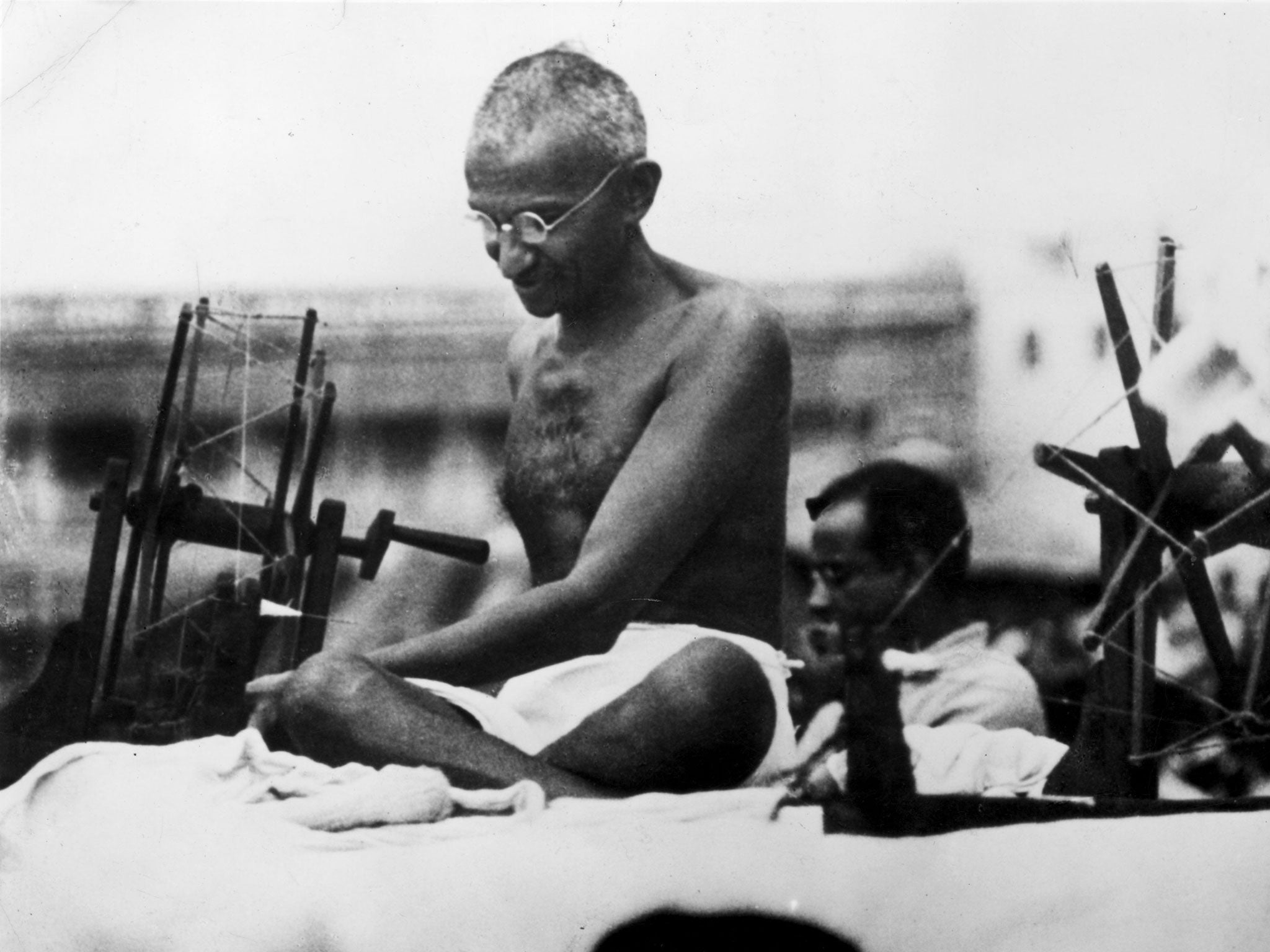Yearning for a simpler life? Tourists given the chance to live like Mahatma Gandhi for a week - but don’t expect any comfort
For £10 a night, visitors will be invited to meditate, learn to prepare simple food and forget about the outside world for a few days

Your support helps us to tell the story
From reproductive rights to climate change to Big Tech, The Independent is on the ground when the story is developing. Whether it's investigating the financials of Elon Musk's pro-Trump PAC or producing our latest documentary, 'The A Word', which shines a light on the American women fighting for reproductive rights, we know how important it is to parse out the facts from the messaging.
At such a critical moment in US history, we need reporters on the ground. Your donation allows us to keep sending journalists to speak to both sides of the story.
The Independent is trusted by Americans across the entire political spectrum. And unlike many other quality news outlets, we choose not to lock Americans out of our reporting and analysis with paywalls. We believe quality journalism should be available to everyone, paid for by those who can afford it.
Your support makes all the difference.Feel free to sit, pray, spin the spinning wheel and even dress in a cotton dhoti. Just be sure to leave your aggression – along with any lust, laziness or foreign goods – at the door.
Tourists from around the world are for the first time being invited to sample the lifestyle of Mahatma Gandhi at the first ashram the independence leader established in India. For R1,000 a night (around £10), visitors will be invited to meditate, learn to prepare simple food and forget about the outside world for a few days.
“We have been thinking about doing this for the past seven or eight years,” said Rajendra Khimani, registrar of the Gujarat Vidyapith university which operates the Kochrab Ashram, close to the western city of Ahmedabad. “We are hoping that we will get people from all over the world.”
Mr Khimani said that after all this time Gandhi remained as important as ever. “Basically he was talking about how we can live in the future,” he said. “He talked about sustainable living. We are still talking about this. He talked about natural resources. These things are very important.”
The ashram, or retreat, was established at Kochrab on the outskirts of Ahmedabad by Mohandas Gandhi when he returned to India from South Africa in 1915. It would be where he would spend several crucial years and where he would further develop many of his ideas for which he has become known.
At the bungalow owned by a fellow lawyer, Gandhi rejected luxury or even comfort and stressed a simple and austere lifestyle. He upset many followers when he admitted a low-caste man, in those days called an Untouchable, to live at the ashram with his family.
Guests will be asked to stay for a minimum of five days. They will also be asked to observe the 11 vows that Gandhi promoted, including non-aggression, truthfulness, control of desires, and equality of religions. They will be asked to wear khadi, the thick, self-woven cotton fabric favoured by Gandhi and his followers.
Sixty-five years after his death, the ideas of Gandhi, who was shot dead in Delhi by Hindu extremists in January 1948, just six months after India secured independence from Britain, remain hugely important.
The organisers of the Live Gandhi for a While promotion, launched this week to coincide with the 144th anniversary of the independence leaders’s birth, say they particularly want to promote his ideas of sustainability.
Nischal Barot of Maroon Migrates, a Gujarat-based tour and travel agent that specialises in responsible tourism and which is a promotor of the programme, said Gandhi was a guide for leading a sustainable life.
“He travelled across the country, connected with many communities, walked to many villages, stayed in their homes, tried helping them to solve their problems and also with a minimal impact on the environment,” he said. “That’s what responsible tourism is all about.”
Mr Barot said guests could spin, write letters or help with the ashram’s daily chores during their stay. “They will also be following the vows of Gandhi,” he said.
Chastity and control: Mahatma’s life rules
In order to stay at Kochrab Ashram, guests must observe Gandhi’s 11 rules:
Ahimsa – non-violence
Satya – truthfulness
Asteya – no stealing
Brahmacharya – self-restraint, including chastity
Aparigraha – no possessions
Sharirshrama – working for daily food
Aswada – control of diet
Sarvatra Bhayavarjana – fearlessness
Sarva Dharma Samantva – equality of faiths
Swadeshi – use of local goods
Sparshbhavana – against notion of untouchability
Join our commenting forum
Join thought-provoking conversations, follow other Independent readers and see their replies
Comments